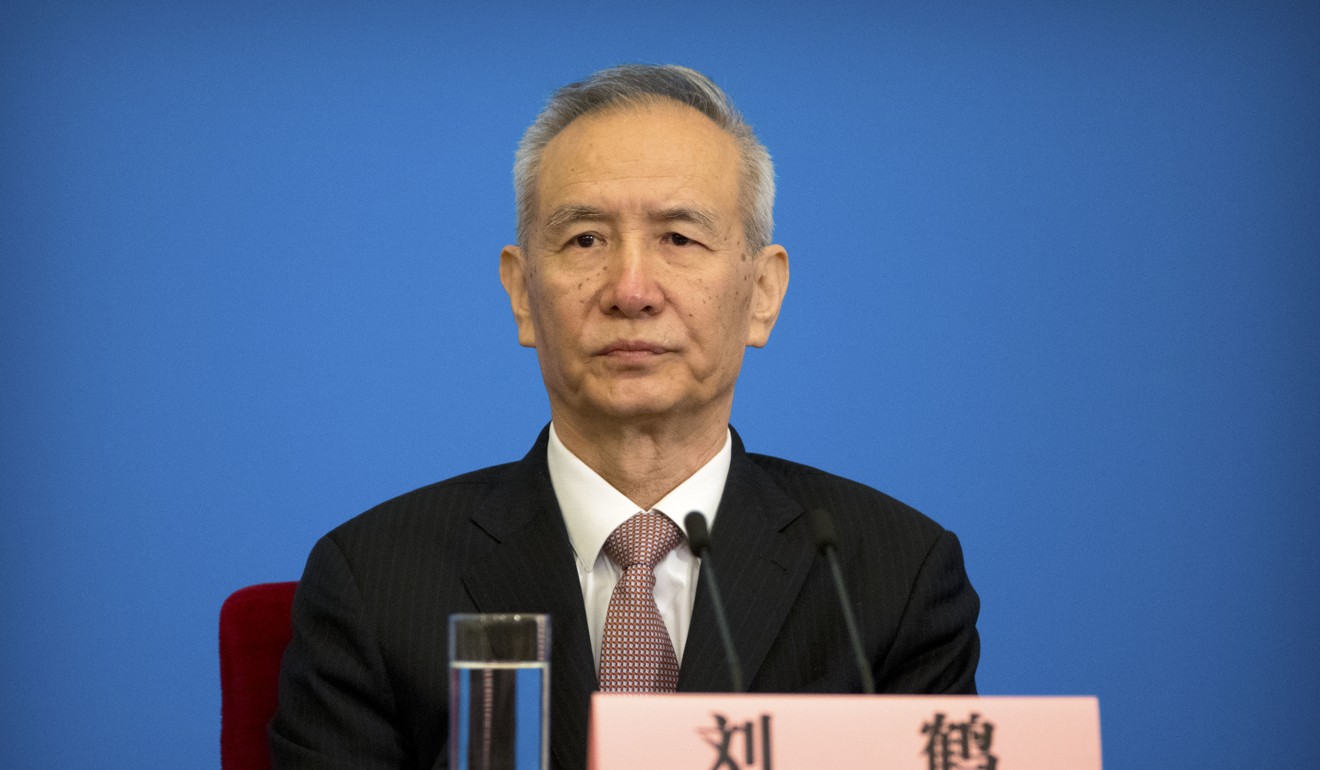
China ‘wants to talk about cutting US trade deficit but will not back down on industrial policy’
Visit to Washington by Xi Jinping’s top economic adviser Liu He for next round of trade talks expected to see push to discuss ways of reducing its trade surplus
China’s Vice-Premier Liu He will push the Americans to discuss concrete steps to cut the trade deficit between the two countries during his visit to Washington next week, according to Chinese trade and diplomatic observers.
They added that while China would not make concessions on its industrial policy – especially the Made in China 2025 development plan, which has prompted allegations of intellectual property theft – it may commit to opening up its markets and ensuring more of a level playing field for all types of enterprises.
Liu’s trip to Washington, announced by the White House late on Monday, will be his second to the US in three months.
The top economic adviser to Chinese President Xi Jinping also played a part in last week’s talks with a US delegation led by Treasury Secretary Steven Mnuchin, which ended without an agreement.
Liu is expected to lead a team consisting of the main economic and financial regulators, as well as officials from the Ministry of Industry and Information Technology.
China’s Ministry of Foreign Affairs did not confirm the trip but its spokesman Geng Shuang told a press conference on Tuesday that the White House had sent “a positive signal” on reaching a consensus with China on trade issues.
He Ning, the former minister for trade and economic affairs at the Chinese embassy in the US, said Beijing was willing to negotiate expanding market access and improving its rules on competition and intellectual property, but added that the US should drop punitive tariff measures.
Wu Xinbo, director of the Centre for American Studies at Fudan University, said Liu’s visit was likely to bring the first breakthrough in what was likely to be a long negotiating process.
“Now the two sides can discuss measures to ease the trade deficit,” he said.
Observers said China would offer to buy more American goods to narrow the trade surplus, but was unlikely to meet America’s demands to cut it by US$200 billion.
A Chinese official familiar with the negotiations said Beijing would not compromise on what it considered to be its core interests, including its support for the 2025 plan.

Analysts said it was still uncertain whether the latest round discussions could delay the implementation of draft US measures targeting China.
The US Trade Representative’s office will hold a public hearing next Tuesday about the US$50 billion worth of Chinese products that are facing 25 per cent import tariffs following a Section 301 into alleged unfair trade practices.
Meanwhile Mnuchin is expected to unveil plans to restrict Chinese investments in sensitive hi-tech American sectors.
Lu Xiang, a specialist on US issues with the Chinese Academy of Social Sciences, said America’s strategy was unpredictable, adding: “China has displayed the utmost sincerity and taken great efforts to prevent things getting out of control. But it is unclear whether China’s efforts can work.”
He Weiwen, a former economic and commercial counsellor at China’s consulates general in New York and San Francisco, noted that China had started to invite foreign companies to participate in the country’s industrial plans, citing the example of a mutual fund to develop integrated chips.
“We should act quickly to offer equal preferential measures to foreign firms in sectors related to Made in China 2025,” he said.
The financial services company Everbright Sun Hung Kai said in a research report that the risk of a trade war would continue to be “a source of uncertainty” for markets, particularly before the US midterm elections in November.
“The trade confrontation between China and the US may drag on for a long time even though there may be gradual measures to address it,” Shi Yinhong, a foreign policy specialist with Renmin University of China and an adviser to the State Council, said.


